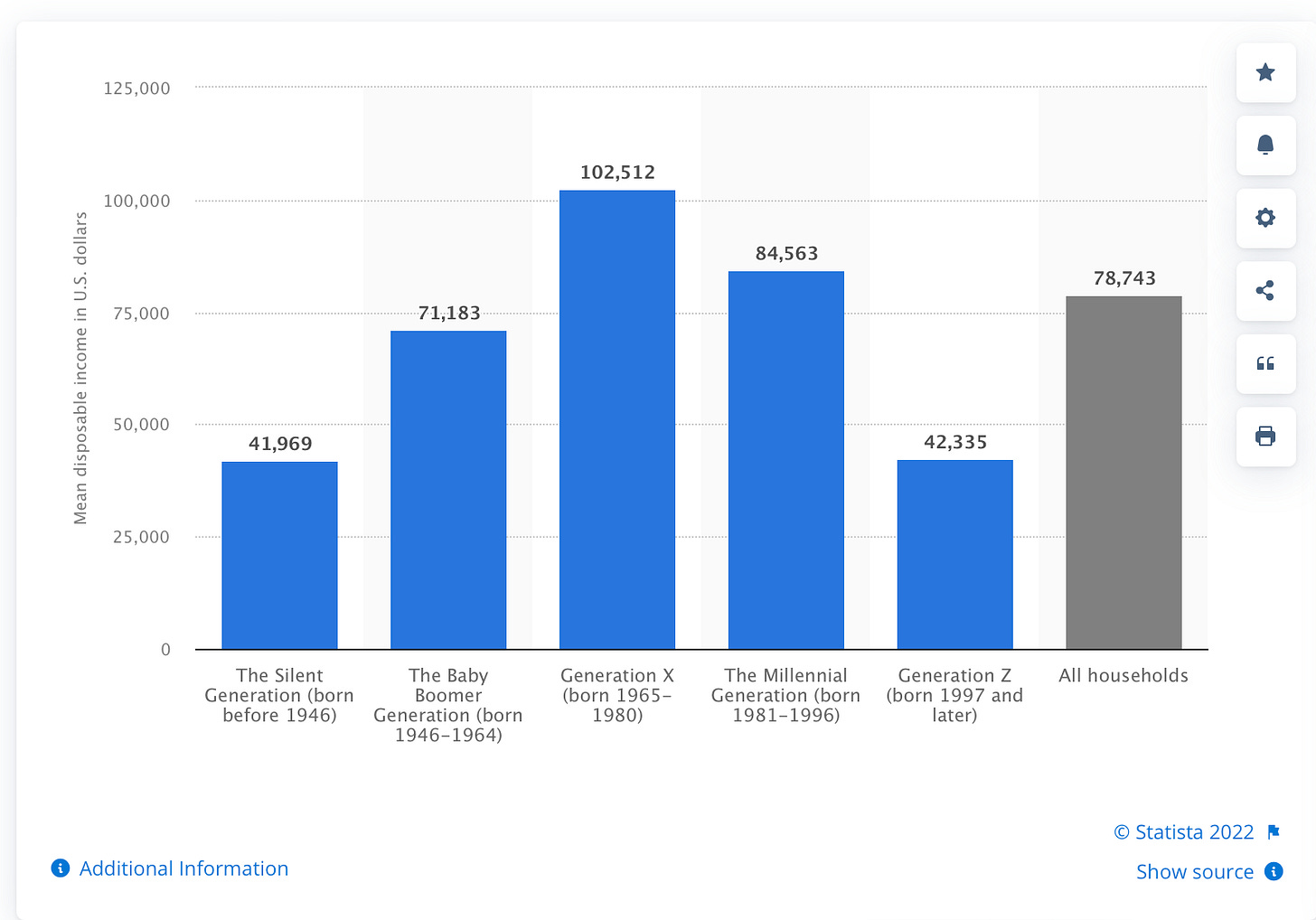A new study has shown that Generation Z members want their clothes to be sustainable, but they still regularly buy fast fashion. There's a lot to unpack here, so bear with me.
Generation Z includes those born between 2001 and 2019. The oldest of them are now of drinking age.
This research demonstrates a "clear gap" between ideals and practice.
Do you agree? I asked some members of Generation Z their opinion on this research.
I spoke with Fernanda, a 21-year-old Comms. Planning & Strategy Assistant at Macy's. She said that she understands why people her age would want sustainable clothing. "I think gen z, although most older gen z are working now, are still at the beginning of their career where we are making some more money than we were before and paying back student loans too… navigating through early adulthood and bills lol to where we know how to shop sustainably via second-hand stores but the price point and accessibility for sustainably made clothing are not always right for us."
And not only is this generation at the beginning of their career, they also make much less than the previous generations. With stagnating wages and mounting student loan debt, it's not surprising that young adults aren't making as much money as their parents once did.
To address the "clear gap" between ideals and practice, it's important to contextualize economic inequality at large.
In addition to socioeconomic oppression, forces such as inflation, changing lifestyles, and viewpoints toward money all make it harder for millennials to achieve the same quality of life as the generations before them, Natalie Chaves, CFP, explains.
Mean disposable household income in the United States in 2021, by generation; via Statista
I also spoke with Chase, a 20-year-old student at. He told me that he tries to buy sustainable clothing when he can, but it's not always possible. "I definitely think people my age are more interested in sustainability than previous generations," he said. "However, I think a lot of us still end up buying fast fashion because it's more affordable."
In this HBR research, The Myth of Sustainable Fashion, Ken, an educator with an abiding focus on sustainability explains how and why sustainable fashion is not as affordable and convenient. Take the production of shirts and shoes, which has more than doubled in the past quarter century — three quarters end up burned or buried in landfills.
Education could reduce the fashion industry's carbon footprint and influence consumer behavior
In his study, Dr. Marc Duffy reported that the women surveyed "supported sustainable fashion by stating they would either pay more or boycott unethical brands. The research also revealed that all the women surveyed were willing to spend more on sustainable clothing, whereas the men were not." The men, on the other hand, displayed "a lack of concern and awareness about sustainable fashion.
The men, however, purchased clothes from more sustainable stores and bought fast fashion less frequently than women. Dr. Duffy did not consider men had fewer shopping options when buying clothes. Because menswear designers can only do so much, given that men are much more conservative about their clothing and have fewer clothing choices than women.
I mean that men don't have the fun of reading about changing trends, as women do, and playing dress-up, being a monochrome one day and then a fun 50s flirt the next.
The research shows that there is a clear gap between the ideals and the reality for Generation Z when it comes to sustainable clothing. While they may want to buy sustainable clothes, the reality is that many of them can't afford it or don't have access to it. I think this is something that needs to change if we want to make a lasting difference for the planet.
What do you think? Let me know in the comments below.





The research seems to fit with our understanding of behaviours. If something affordable on offer it's hard to resist. Reducing consumption, being open to preloved and wearing for longer has to be the primary behavioural aim for Gen Z while fast fashion companies are obliged to improve quality and improve sustainability through legislation. Co-founder repairwhatyouwear.com